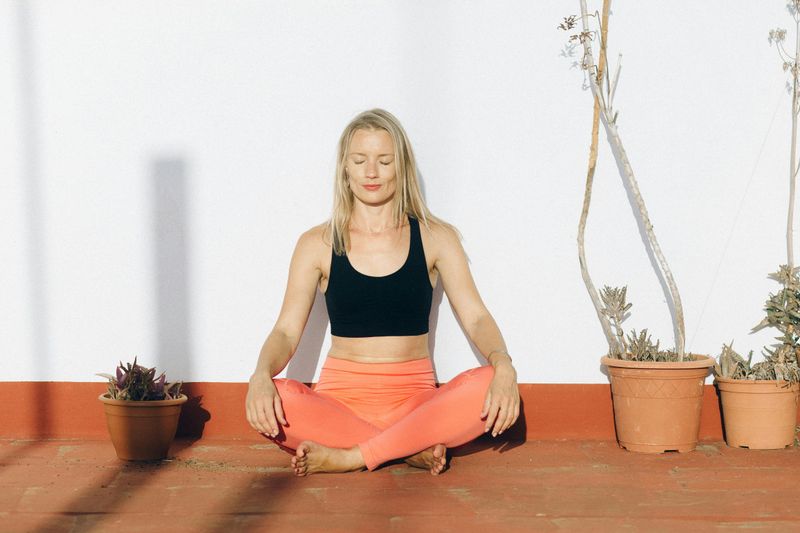12 Daily Habits That Boost Your Mood Without Costing a Cent

Feeling good doesn’t have to drain your wallet. In fact, some of the most powerful mood-lifting activities are completely free and can be worked into your everyday routine. These simple habits can help fight stress, boost happiness, and improve your overall wellbeing—all without spending a dime. Ready to feel better without breaking the bank?
1. Morning Stretching Ritual

Your body craves movement after hours of sleep. A five-minute morning stretch sends oxygen flowing through your muscles and triggers the release of endorphins – those feel-good chemicals that naturally lift your spirits.
Start with simple reaches toward the ceiling, followed by gentle side bends and slow neck rolls. No fancy equipment or complicated poses needed! Just follow what feels good to your body.
Many people report feeling mentally clearer and physically energized after this brief morning ritual, setting a positive tone for the hours ahead.
2. Gratitude Journaling

Grab any notebook and spend just three minutes writing down three things you’re thankful for today. The magic happens when you get specific – not just “my family” but “the way my daughter laughed during breakfast.”
Research from positive psychology shows this simple practice actually rewires your brain to notice more positive aspects of life. Even on terrible days, finding tiny bright spots creates powerful perspective shifts.
Keep your journal beside your bed as a visual reminder, and watch how your awareness of life’s good parts naturally expands over time.
3. Forest Bathing

Japanese researchers discovered something our ancestors always knew: walking among trees reduces stress hormones dramatically. They call it “shinrin-yoku” or forest bathing – simply spending time under a leafy canopy without any particular goal.
The compounds trees release (phytoncides) actually boost our immune systems while lowering blood pressure. No hiking boots or special equipment required – just wander into any patch of trees near your home.
Even 20 minutes surrounded by greenery can reset your nervous system and create a sense of calm that lasts hours afterward.
4. Laughter Breaks

Funny cat videos aren’t just time-wasters – they’re medicine! Genuine laughter releases tension in 15 muscles in your face and triggers endorphin release similar to light exercise. Your body can’t tell the difference between “real” laughter and intentional chuckling.
Keep a folder of funny memes, bookmarked comedy clips, or hilarious text exchanges for quick mood emergency interventions. Even forced laughter transforms into real giggles within seconds.
The physical act of laughing increases oxygen intake, stimulates organs, and activates your stress response – then cools it down, creating a relaxed feeling afterward.
5. Power Posing

Standing like Superman for just two minutes – hands on hips, chest forward, head high – actually changes your hormone levels. Harvard research shows this “power posing” decreases cortisol (the stress hormone) while boosting confidence-building testosterone.
Try it before stressful situations like job interviews, difficult conversations, or whenever you need a quick confidence boost. Nobody needs to see you do it – bathroom stalls work perfectly!
Your body position directly influences your brain chemistry, creating a fascinating mind-body feedback loop that you can activate anytime, anywhere, without spending a penny.
6. Cold Water Face Splash

The jolt of cold water against your skin triggers an immediate physiological response. Your heart rate momentarily slows, blood vessels constrict, and your brain receives a refreshing burst of alertness through what scientists call the “mammalian dive reflex.”
Fill your sink with cool water, take a deep breath, and gently splash your face three times. Notice the immediate sensation of awakeness that follows.
This ancient practice works particularly well during afternoon energy slumps or moments of emotional overwhelm, resetting your system in seconds without caffeine or sugar.
7. Deep Breathing Reset

The 4-7-8 breathing technique works like a natural tranquilizer for your nervous system. Breathe in quietly through your nose for 4 counts, hold for 7 counts, then exhale completely through your mouth for 8 counts, making a whooshing sound.
This pattern activates your parasympathetic nervous system – your body’s built-in relaxation response. The beauty lies in its simplicity and accessibility during stressful moments.
Practice this breath cycle four times in a row, twice daily, and especially during moments when anxiety or negative emotions start to rise. The effects build with regular practice.
8. Random Acts of Kindness

Holding the elevator, complimenting a stranger’s outfit, or sending an encouraging text creates what researchers call a “helper’s high.” Your brain releases dopamine, endorphins, and oxytocin – the same chemicals activated by certain medications!
The size of the kind act doesn’t matter. Even tiny gestures trigger this biological reward system while creating positive ripple effects around you.
Challenge yourself to perform one unexpected kindness daily. The mood boost often lasts hours longer than the time it took to perform the act itself, making this habit exceptionally efficient for emotional wellbeing.
9. Memory Savoring

Close your eyes and mentally revisit a happy memory in vivid detail. Focus on the sensory elements – the sounds, smells, textures, and emotions present in that moment. Your brain processes recalled joy similarly to experiencing it fresh.
Neuroscience shows this practice activates the same pleasure centers that lit up during the original experience. It’s like time-traveling to emotional high points without leaving your chair.
Build a mental library of 5-10 vivid positive memories you can access during difficult moments. This form of emotional first-aid costs nothing but provides immediate relief during stressful situations.
10. Decluttering Session

Messy spaces create visual noise that subtly drains mental energy. Set a timer for just 10 minutes and tackle one small area – a drawer, countertop, or desk corner. The visible progress provides immediate satisfaction.
Physical clutter activates stress receptors in your brain, while organized spaces promote feelings of control and capability. Even tiny tidying victories trigger reward pathways in your brain.
Focus on completion rather than perfection. The emotional lightness that follows clearing even one small space often motivates further organizing, creating an upward spiral of accomplishment and environmental improvement.
11. Sky Gazing

Ancient philosophers and modern psychologists agree: looking upward expands your perspective literally and figuratively. Watching clouds drift or stars emerge triggers what psychologists call “awe” – a complex emotion that reduces stress and increases feelings of connection.
Find a comfortable spot, tilt your head back, and simply observe the ever-changing canvas above. This practice works in all weather – stormy skies can be just as captivating as clear blue ones.
Sky gazing interrupts rumination (that hamster wheel of worried thoughts) by drawing attention to something vast and constantly changing, providing natural perspective shifts during difficult times.
12. Body Scan Relaxation

Tension hides in your body – clenched jaw, hunched shoulders, tight stomach – often without awareness. A systematic body scan brings attention to these stress-holding patterns so you can release them intentionally.
Starting at your toes, mentally travel upward through each body part, noticing sensations without judgment. When you find tension, breathe into that area and visualize it softening with each exhale.
This practice combines elements of meditation and progressive muscle relaxation, creating a powerful stress-management tool you can use anywhere – waiting rooms, traffic jams, or before sleep – to instantly improve your mood.

Comments
Loading…